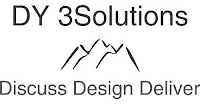Over the last couple of days, I’ve caught up on a couple of
programmes that documented the first 24 hours of the D. Day landings: 24 critical hours that eventually lead to the
opening of a second front and ultimately, success. It was to use a quotation
from another war “A close run thing.”
Dwight D Eisenhower had prepared a note
explaining that the invasion had been unsuccessful, and the allies were
withdrawing from the Normandy Beaches. It wasn’t needed.
The invasion was a success, and the beach head was secured:
a necessary and high-risk strategy had paid off, a triumph of human endeavour,
bravery and logistics on a breath-taking scale but of course, not everything worked.
Some Commanding Officers were killed or seriously wounded,
and it was suggested that the units under their command broadly did one of two
things: they either held their ground or advanced and those that advanced did
so under the leadership of someone from the lower ranks who assumed a
leadership role. No elections, no debate: this was the very heat of battle.
Their adaptability, bravery and determination to accomplish the task in hand
came, I suggest, from a deep reservoir of personal qualities that were seen
recognised and accepted by others. Their “on the day (s)” contribution led to
the Allies ability to grow from beach-head to bridge head and ultimately to
victory just under a year later.
Do we in our leadership role recognise our team-members who
would in our sudden and unplanned absence, instantly take on the courageous
challenges of leadership, securing the permissions and support of other team
members when so doing: no debate right now, we’ve got a job to do!
We do something trite and banal when we compare and contrast
the bloodless challenges of our 21st Century lives with the war-time
savagery experienced by those under live fire or about to be. But we equally
fail ourselves if in our leadership roles, we fail to ask ourselves how and by
whom we would be replaced at short notice. So, who are your natural choices and
where do they currently sit within formal and informal hierarchies and, are
they ready?












